The Tomkins incident on 30 November 2004 was an attack by two white farmers on two Aboriginal boys found trespassing on their property near Goondiwindi, a town on the border of Queensland and New South Wales in Australia.
David and Clint Tomkins, a father and son managing the farm, allegedly beat Alan Boland and Bevan Bartman and dragged Boland around the property with a noose around his neck. The incident occurred just four days after the suspicious death in police custody of an Aboriginal man in the community of Palm Island that saw the island community riot.
The local Aboriginal community was outraged when the Tomkins were handed down a A$500 fine each for their treatment of the four boys, who themselves were charged with break, enter and steal. The event made headlines in countries around the world, including the UK. [1]
On November 2004, four Indigenous boys from the Toomelah Aboriginal Mission swam across the Macintyre River to a nearby Queensland property managed by David Hilary Tomkins (then 44 years old) and his son Clint Williams Tomkins (then 23 years old). The four boys, Alan Boland (16), Bevan "BJ" Bartman (19), Reg McGrady (23) and Jade, had said that they had previously bought marijuana from the Tomkins but had recently begun stealing it from the property instead. [2]
The four boys broke into a building with the intention of stealing from a hydroponic crop inside, but were discovered by the Tomkins. McGrady and Jade escaped to the other side of the river, but the other two, Bartman and Boland, were caught by the Tomkins.
Bartman and Boland allege that the Tomkins pulled Boland back through the river, stripped him naked, bound his wrists and then dragged him up an embankment by a rope tied around his neck. They also allege the Tomkins tied Bartman to a tree and forced him to watch as they threatened to cut off Boland's toes with a pair of pliers and beat them both with sticks. [3]
Bartman has said he managed to escape after he faked an asthma attack while he was being untied from the tree. He then ran back through the bush and swam across the river. Boland said the two Tomkins then walked into the farmhouse and returned with a double-barrelled shotgun and 0.22-calibre rifle, loaded both in front of Boland and pressed the guns to either side of his temples, yelled racist taunts and hammered the boy's face with their gun butts. The Tomkins called the police and allegedly removed the noose from Boland's neck before they arrived. The police took Boland to Goondiwindi police station and charged him with break and enter.
Boland's family have said the police questioned Boland for three hours until legal representation from Legal Aid arrived. The representative allegedly said that Boland was in no condition to give a statement, and ordered the boy be taken to hospital to be treated for his injuries, which he considered were extremely severe.
Boland's family have said Boland's face was bruised and swollen, he had suffered several cuts on his body from being dragged around and had rope burns around his neck. Boland's family have said Boland was still in shock and vomited repeatedly on the way to the hospital.
At the local Goondiwindi hospital a nurse attended Boland, but the doctor on duty refused to see him, despite the gravity of his injuries, according to Boland's family. At one stage Boland and one of the Tomkins, who had broken his arm in the fracas, were sitting together in the same treatment room. Boland was then taken by the police to a holding cell in Tenterfield.
The court case was held on 18 May 2005. At 9.30 am, two hours before the case, the police prosecutor told Boland's mother Rosalyn, Toomelah elder Ada Jarrett and a Toowoomba Legal Aid representative that the Tomkins would only get a fine or a good behaviour bond, according to Mrs Boland and Jarrett. [4]
According to Jarrett and Mrs Boland, a police sergeant and the prosecutor then repeatedly pressured them for another two hours to sign statements dropping the more serious charge of assault occasioning bodily harm in company, for which there is a maximum penalty of 10 years' jail. [5] The sergeant and prosecutor claimed the Tomkins would walk free if Boland didn't arrive at the courthouse on time, said Jarrett and Mrs Boland. [4]
A large number of indigenous relatives and residents from Toomelah, Boggabilla and Moree had turned up to witness the court's proceedings, as had "Sugar" Ray Robinson, former deputy chairman of the Aboriginal and Torres Strait Islander Commission. Local Aboriginal leader Bert Button said the charge of assault causing bodily harm in company was an outrage. He demanded the two men be given murder charges. [6]
At the hearing, held before magistrate Dennis Beutel, the Tomkins pleaded guilty to common assault. The prosecutor representing the four Toomelah boys did not produce photographs of the boys' injuries nor use their testimonies, according to Jarrett. The prosecutor also failed to mention the drugs on the Tomkins' property.
The UK's Daily Telegraph reported that the Tomkins' defence lawyer, Robbie Davis, had said his clients had become fed up with frequent break-ins on the farm and that they had used "reasonable force" to restrain Boland. Davis said the Tomkins were wrong to tie a noose around Boland's neck. "It's a pity they didn't have the hindsight [sic] to put a rope around his waist and not his neck," he told the court. "This is not a racial event. It would have been the same if it had been a white youth." [1] The Tomkins were fined A$500 each, and ordered to pay A$300 each to the victim. For a common assault charge, up to three years imprisonment is possible. [7]
Outside the court house, the victims' relatives were outraged and began yelling abuse at the police and the Tomkins, who were led out under heavy police guard. Protesters waved placards declaring "One law for whites and one law for blacks – still" and "This is KKK land". [4] The police had already called in a number of extra squad cars and reinforcements, including a SWAT team that was stationed around the courthouse.
ATSIC's Robinson called on Queensland Premier Peter Beattie to investigate the case and the actions of the police. [8] Local leader Bert Button said, "The justice system stinks. It's saying it's all right for non-Indigenous people to go and put a rope around someone's neck and drag them up and down a river and give them a flogging." [9] The Tomkins spent the night under police protection.
There was no appeal brought against the criminal case decision by the victims.
After the guilty verdict David Tomkins told the Seven Network that he would do it again if confronted with the same situation. He said it was the third time in two years that his home had been broken into, and that he only wanted to detain Boland, according to an AAP report. [4] "My proud home keeps getting broken into and robbed," said Tomkins. "All I did was detain one of the criminals for the police."

A noose is a loop at the end of a rope in which the knot tightens under load and can be loosened without untying the knot. The knot can be used to secure a rope to a post, pole, or animal but only where the end is in a position that the loop can be passed over.

The Omaha Race Riot occurred in Omaha, Nebraska, September 28–29, 1919. The race riot resulted in the lynching of Will Brown, a black civilian; the death of two white rioters; the injuries of many Omaha Police Department officers and civilians, including the attempted hanging of Mayor Edward Parsons Smith; and a public rampage by thousands of white rioters who set fire to the Douglas County Courthouse in downtown Omaha. It followed more than 20 race riots that occurred in major industrial cities of the United States during the Red Summer of 1919.
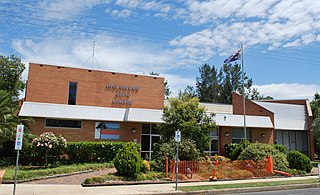
Inglewood is a rural town and locality in the Goondiwindi Region, Queensland, Australia. In the 2016 census, the locality of Inglewood had a population of 954 people, making Inglewood the second largest town in the Goondiwindi Region.
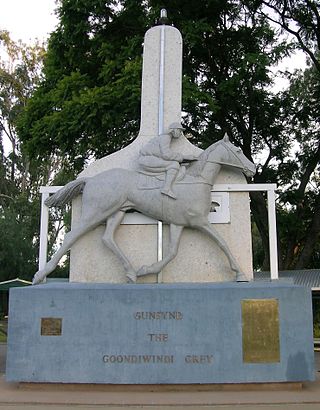
Goondiwindi is a rural town and locality in the Goondiwindi Region, Queensland, Australia. It is on the border of Queensland and New South Wales. In the 2016 census, Goondiwindi had a population of 6,355 people.
Mohammed Bijeh (Persian: محمد بيجه; was an Iranian serial killer. He was convicted of raping and killing 48 young boys between March 2002 and September 2004, and was sentenced to 100 lashes followed by execution. All the boys were between 8 and 15 years old. Additionally, he killed two adults. The murder of children around Tehran was recognized as the largest criminal case in Iran for the last 71 years, and strongly influenced public opinion in the country.

Scott Thomas Erskine was an American serial killer on California's death row, convicted in 2003 for the 1993 murder of two California boys. He was incarcerated at San Quentin State Prison.
The 2004 Palm Island death in custody incident relates to the death of an Aboriginal resident of Palm Island, Cameron Doomadgee on Friday, 19 November 2004 in a police cell. The death of Mulrunji led to civic disturbances on the island and a legal, political and media sensation that continued for fourteen years.
Joseph Samuel was a German known for having survived his execution attempts. Convicted for robbery in 1795, he was sentenced in 1801 to transportation to Australia, one of 297 convicted felons aboard the vessels Nile, Canada and Minorca.
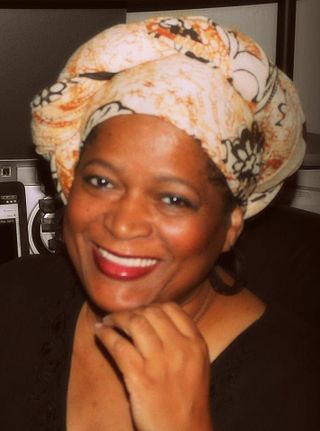
Brenda Cherry is an American civil rights activist from Paris, Texas.

On April 4, 2013, Rehtaeh Parsons, a 17-year-old former Cole Harbour District High School student, attempted suicide by hanging at her home in Dartmouth, Nova Scotia, Canada, leading to a coma and the decision to switch her life support machine off on April 7, 2013. Her death has been attributed to online distribution of photos of an alleged gang rape that occurred 17 months prior to her suicide, in November 2011. On a Facebook page set up in tribute to her daughter, Parsons' mother blamed the four boys who allegedly raped and released images of her, the subsequent constant "bullying and messaging and harassment", and the failure of the Canadian justice system, for her daughter's decision to die by suicide.
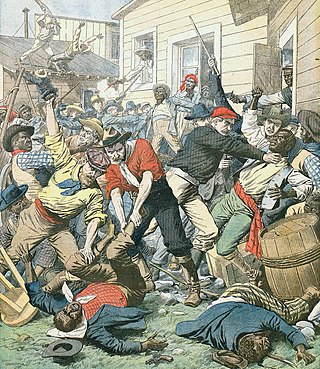
On Tuesday, November 12, 1914, John Evans, a black man, was lynched in St. Petersburg, Florida, United States, by a mob of 1,500 white men, women and children. Evans was accused of the murder of Edward Sherman, a white real estate developer, and the attack of Sherman's wife, Mary. After word of the attack spread, and Mary Sherman claimed her attackers were "two negroes," a citywide search ensued. Suspicions immediately led to John Evans. Two days after the murder, a posse consisting of some of the city's most prominent and well-respected members stormed the St. Petersburg jail, threw a noose around Evans' neck and marched him to his death. He was never given a fair trial. Evans was hanged from a light post on the corner of Ninth Street South and Second Avenue. At first, he kept himself alive by wrapping his legs around the light pole. An unidentified white woman in a nearby automobile ended his struggle with a single bullet. Though the shot was fatal, the rest of the crowd began shooting at Evans' dangling body until their ammunition was depleted.
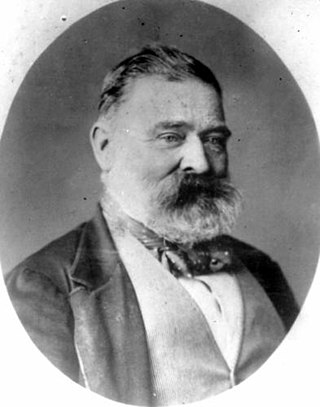
Jacob Low was a former articled clerk turned pastoralist who served as a Member of the Queensland Legislative Assembly in Australia.
"Flag Salute" is a poem written by Esther Popel about the lynching of George Armwood on October 18, 1933 in Princess Anne, Maryland. It was first published in August 1934 in The Crisis and later republished in its entirety on the cover of The Crisis in 1940.
On July 19, 2015, in Cincinnati, Ohio, Samuel DuBose, an unarmed man, was fatally shot by Ray Tensing, a University of Cincinnati police officer, during an off-campus traffic stop for not having the front license plate on the vehicle.
Isabel Ann Flick was an Australian Aboriginal rights activist, social worker and teacher. She was recognised as a leader not only of the Aboriginal community of Australia, but as a spokesperson for environmental issues in her hometown of Collarenebri, in northwestern New South Wales.

The murder of Roy Tutill occurred on 23 April 1968 in Surrey, England, United Kingdom. The victim was a 14-year-old schoolboy who was raped and murdered on his way home from school. The murder went unsolved for 33 years, until Brian Lunn Field confessed to the crime after DNA evidence surfaced in 2001. It was the oldest cold case to be solved in the United Kingdom until the conviction of David Burgess for the 1966 murder of Yolande Waddington in 2012.
Callandoon is a rural locality in the Goondiwindi Region, Queensland, Australia. It is on the border of Queensland and New South Wales. In the 2016 census, Callandoon had a population of 33 people.

Talwood is a town in the rural locality of North Talwood in Goondiwindi Region, Queensland, Australia.
Jo Reed was an African American man who was lynched in Nashville, Tennessee, on April 30, 1875, where he was taken by a white mob from the county jail after being arrested for killing a police officer in a confrontation. He was hanged from a suspension bridge but, after the rope broke, Reed survived the attempted lynching, escaped via the river, and left Nashville to go West.

On January 29, 2019, American actor Jussie Smollett approached the Chicago Police Department and reported a hate crime that he had staged earlier that morning. He planned the hate crime with two Nigerian brothers, Abimbola and Olabinjo Osundairo, who had worked as extras on the set of television drama Empire, in which Smollett was a cast member. During the staged attack, which took place on East Lower North Water Street in Chicago's Streeterville neighborhood, the disguised brothers shouted racial and homophobic slurs while one poured bleach on Smollett and the other placed a noose around his neck. In addition to falsely reporting that he had been attacked by two unknown individuals, Smollett described one of them as a white male. He also told police the men shouted "MAGA country" during the attack, a reference to the Trumpist political slogan "Make America Great Again". The brothers later testified that Smollett staged the attack near a surveillance camera so that video of it could be publicized.